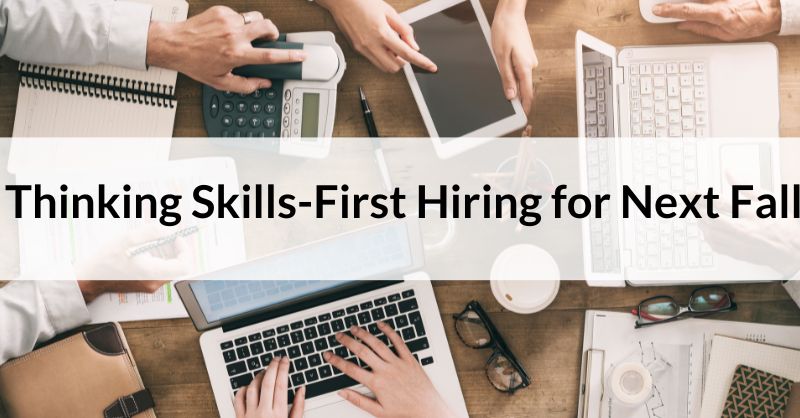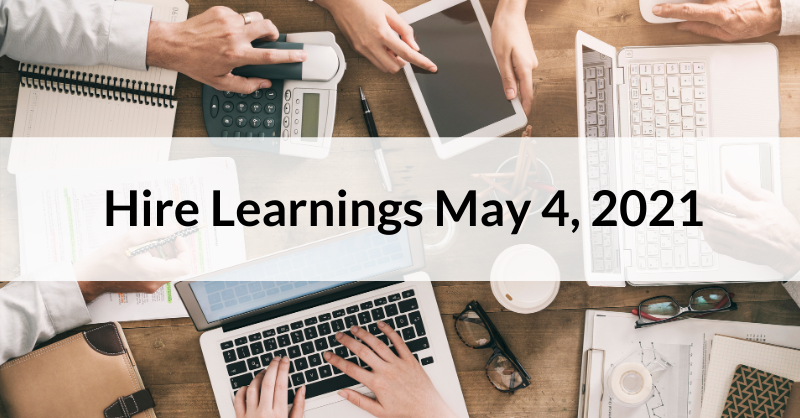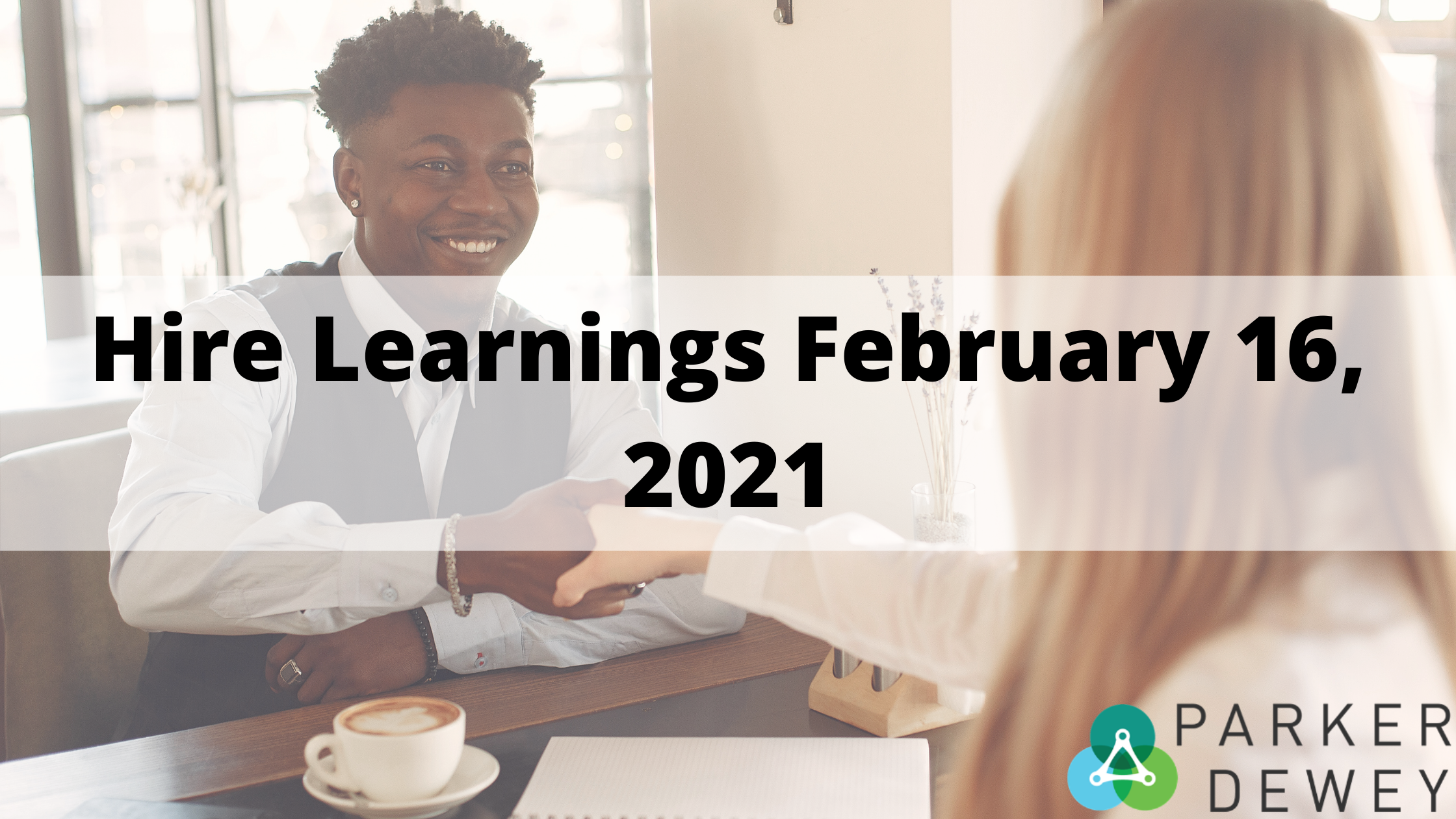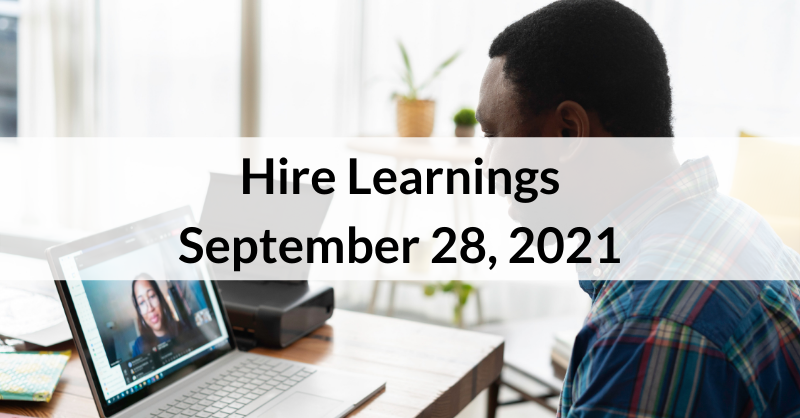
Thinking Skills-First Hiring for Next Fall
As I mentioned last week, this spring is unusual as companies are still wrapping up this year’s campus recruiting efforts and preparing (or should be) for the surprises that are yet to come—higher renege rates, new manager requests, and other unexpected hurdles.
At the same time, they’re also planning for next year and trying to get an early jump on potential intern and full-time candidates to be recruited this fall.
That’s why this spring is such an interesting time for those involved in university recruiting. And as highlighted in the article below, Skills-First hiring allows companies to better assess and hire candidates. For companies that haven’t used this approach in campus recruiting efforts, it’s the perfect time. Not only can it help you evaluate the impact as you plan for this fall—it can also give you early access to next year’s candidates (and a pool of candidates for any surprises that emerge before).
Speaking of assessing and hiring candidates, we recently shared five opportunities to introduce Experiential Recruiting within your organization. Read on for a summary of the first one below, or check out all five here.
And lastly, as we look to the fall, we’re thinking about how companies can support high-potential candidates unable to participate in traditional programming—specifically, student-athletes. Join me for April’s The State of Campus Recruiting, where we’ll take a look at best practices and strategy considerations for next fall.
Jeffrey Moss, Founder and CEO
Articles of the Week
Skills-First Hiring Might Sound Like a New Idea — But Some Industries Have Been Using It for Years - LinkedIn Talent Blog
Turnover ‘Tsunami’ Expected Once Pandemic Ends - SHRM
Higher Ed’s Future at the Intersection of Learners and Employers - Inside Higher Ed
When to Take a Chance on an Imperfect Job Candidate - Harvard Business Review
Skills-First Hiring Might Sound Like a New Idea — But Some Industries Have Been Using It for Years - LinkedIn Talent Blog
“In performance-driven businesses, job auditions have been around almost as long as jobs have been, allowing for more informed and equitable decision-making. And with the recent push for a skills-first hiring process, the corporate world may be on the verge of catching up with this practice.”
What happens when your pair skill-first hiring and campus recruiting? Expanded access. Improved Diversity. Enhanced brand. Lower cost. Better hires. This form of experiential recruiting allows companies to pivot from reliance on less-effective tools—like academic pedigree and bullet points on a resume—to evaluation of skills that are actually essential for success in the role.
Related reading: Virtual Internships Allow Hiring Assessments to Evolve
Turnover ‘Tsunami’ Expected Once Pandemic Ends - SHRM
“Retention and turnover experts now predict voluntary job-leaving will increase significantly in 2021 as employees resume job searches they put off for the past year.”
With the pandemic beginning to wind down, research suggests that voluntary turnover will skyrocket. This article examines some of the core catalysts behind the predicted turnover surge—and what employers can do to support retention.
Related reading: How Micro-Internships Can Bring Diversity, New Perspectives, and Talent to Employers
Higher Ed’s Future at the Intersection of Learners and Employers - Inside Higher Ed
“In order to meet the desires of [college] learners and their soon-to-be employers, we need to thoroughly understand the changing environment and constantly adjust our curriculum and learning outcomes to match the needs.”
Many students view higher education as a pathway for launching a career, despite the price tag and future debt. This article considers how institutions can best equip students with the tools to survive—and excel—in the post-college professional world.
Related reading: Strategies to Overcome Underemployment of College Graduate
When to Take a Chance on an Imperfect Job Candidate - Harvard Business Review
“Sometimes a job description and request for applications yields less-than-ideal candidates. How do you evaluate someone you know isn’t exactly right for the position?”
No candidate is likely to check every single box. How can employers gauge what characteristics are actually key in filling your open role? (Hint: HBR suggests an experiential assessment process that allows you to determine a candidate’s interest in learning, emotional intelligence, and potential for growth—all of which can be accomplished through a Micro-Internship!)
Related reading: Virtual Internships Allow Hiring Assessments to Evolve
For more stories and insights on HR, recruiting, and diversity, click here to subscribe to our weekly newsletter Hire Learnings.




